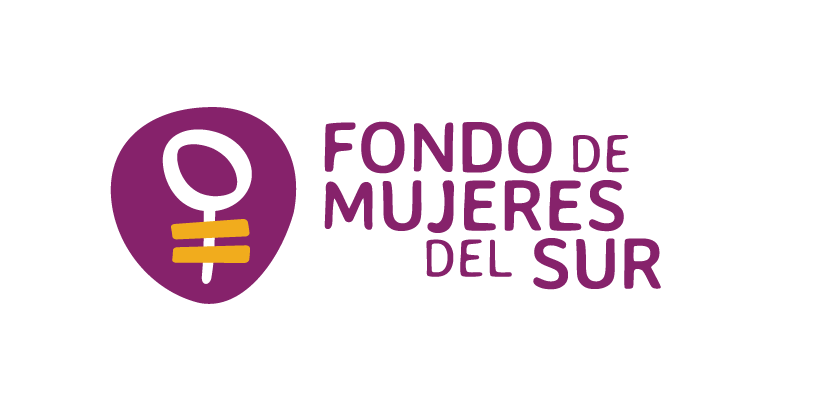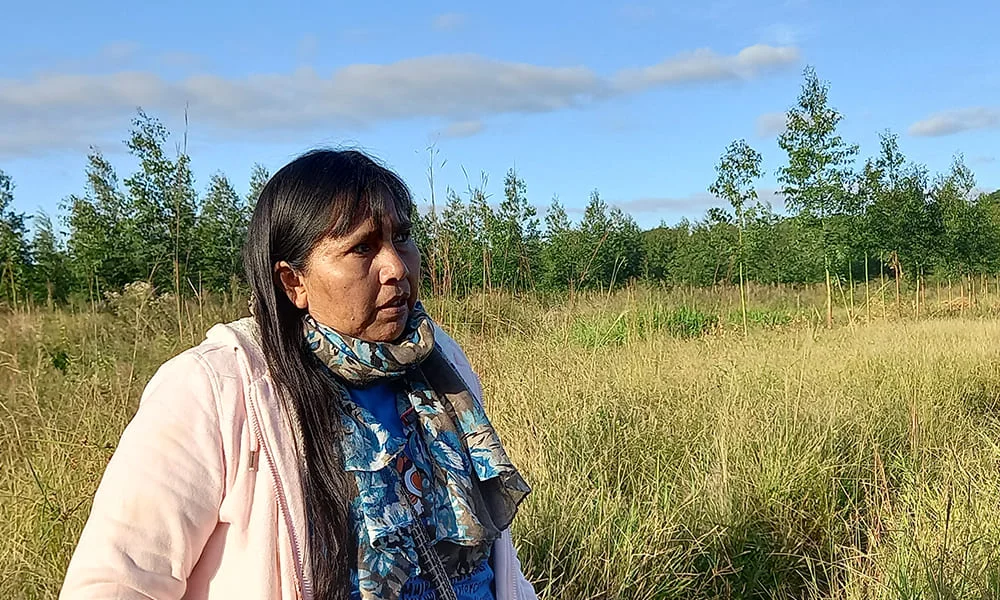Bernarda Pesoa is 41 years old. She has two daughters, three sons and three grandchildren. She lives in Villa Hayes, in the Presidente Hayes department, where the Paraguayan Chaco begins. Bernarda is Qom, she is a craftswoman and a human rights activist.
Her house is on one of the nine plots of land that an individual donated years ago so that eight communities could have access to their own land. This is especially significant in a country where access to land is historically one of the main reasons for conflict.
Where Bernarda lives, land ownership is communal. There needs to be agreement on its use and destination. There are 1117 hectares total that are divided into nine plots. Eight plots are used one for each community, which belong to three different clans: Cerriteños, Chaqueños and Rosarinos. On Bernarda’s plot, the Santa Rosa community of the Rosarino clan, 71 families live together.
One plot is shared communally. There are 35 cultivable hectares, which could be used to supply food for the inhabitants of all the communities.
The joint decision on the use and destination of the land was thrown into crisis with the emergence of the Semáforo contra la Pobreza (Poverty Stoplight) project run by Fundación Paraguaya. The project proposed allocating 20 of those 35 hectares to eucalyptus monoculture for forest exploitation. That is, something that appears to be a forest, but is only intensive cultivation.
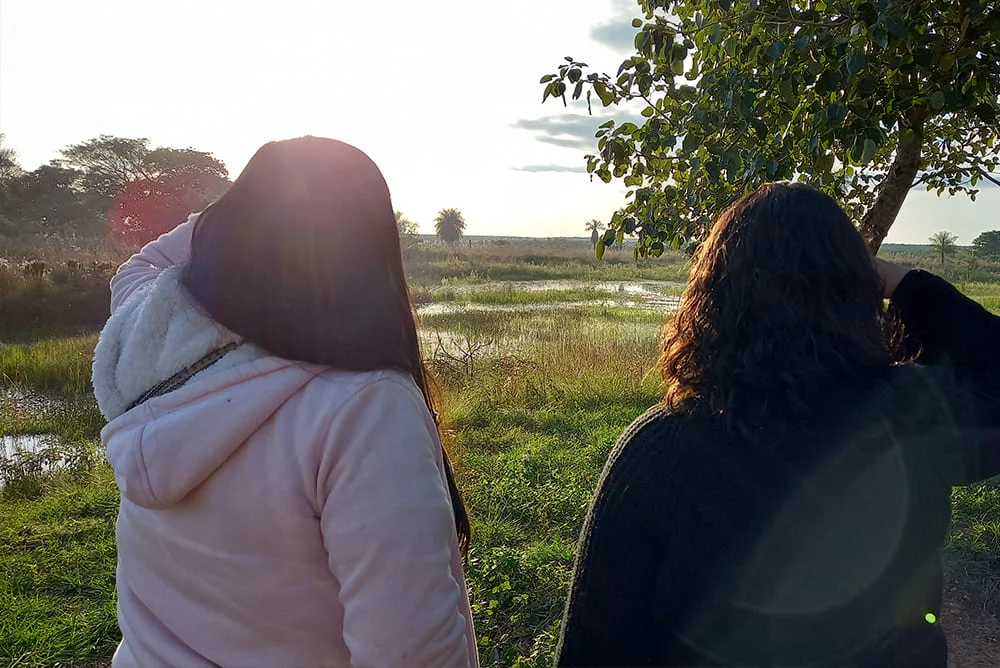
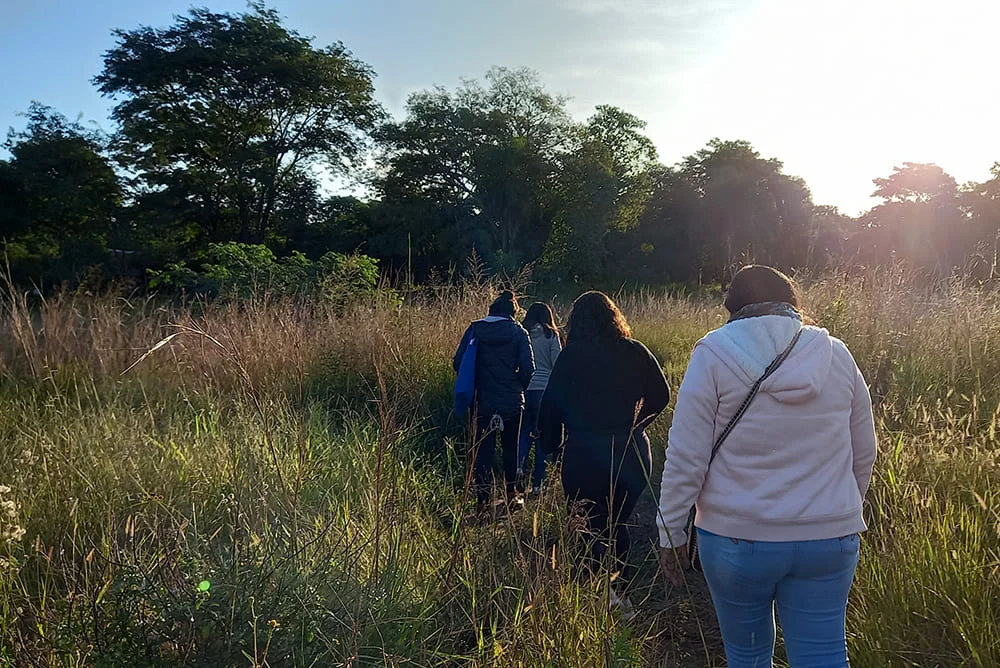
One of the problems that monoculture brings with it is that the hectares are not available to grow food, but there is also another problem, perhaps the main one: eucalyptus trees require an exorbitant amount of water to grow. That water that the eucalyptus trees need dries up the aquifers that are used for human consumption and endangers the ponds where Bernarda and other craftswomen cultivate the reeds, a plant with which they make their crafts to sell and which are their economic sustenance.
In other words, the eucalyptus tree plantation puts the livelihood of the community at risk in many ways: it leaves them without water for human consumption, without land to cultivate, and without reeds to work with.
Not only that. The introduction of eucalyptus trees brought serious conflicts between the communities. Three of the eight communities agreed to the plantation, and imposed their decision on the others, calling into question the required consensus to manage community property. This led to episodes of violence and put those who resisted at risk. Bernarda was even threatened and beaten.
Despite multiple actions that were implemented to stop the monoculture, in November 2021 the plantation began. In June we were there and the trees were already more than a metre and a half tall.
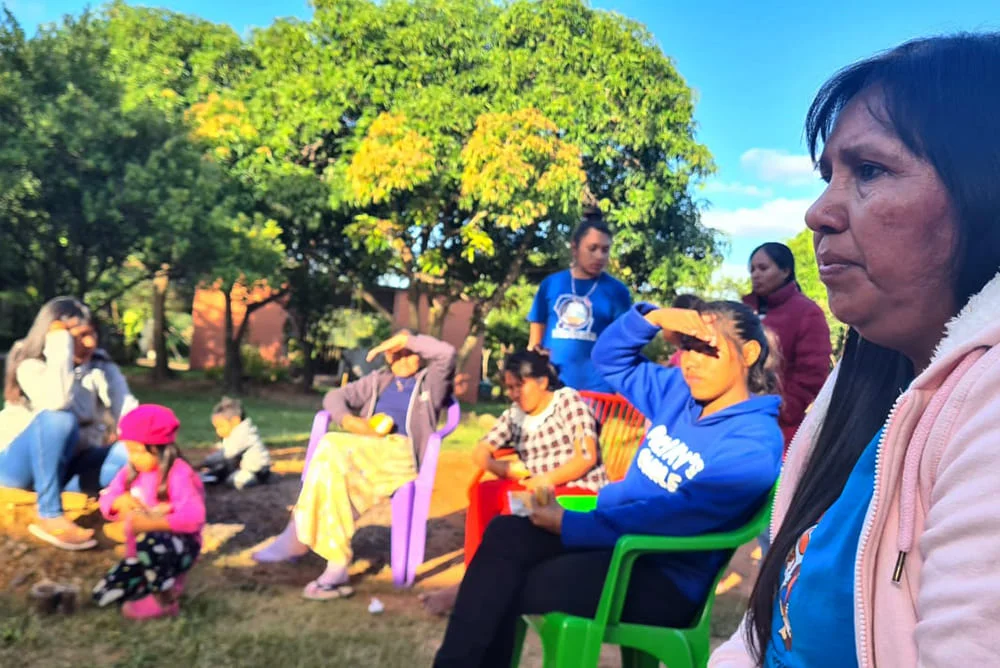
On that occasion, we talked with Bernarda and the craftswomen and activists about their day-to-day life and what they need today. The answer was clear and unambiguous: legal advice. Not only to be able to read legal texts, but because the institutions will not give them records or documents without the intermediation of a legal advisor.
Today it is extremely important for them to be able to access legal advice and representation, not only because of the conflict surrounding the eucalyptus monoculture, but also because of a road project that could run across community land.
At the end of 2021, Bernarda received the Dignity Award for Achievement awarded by the Paraguay Human Rights Coordinating Office (CODEHUPY). This video was made about Bernarda because of the award she received. We hope that the distinction brings good news for her community!
